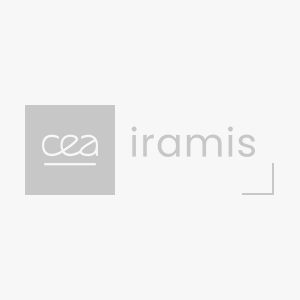Domain, Specialties: Physical chemistry
Keywords: theoretical chemistry, artificial intelligence, machine learning
Research Unit: NIMBE / LSDRM
For this internship, the trainee will build and apply artificial neural networks able to simulate at atomic scale the structural and dynamic properties of superconcentrated lithium salt electrolytes for lithium-ion batteries.
Full description
Research focused on aqueous super-concentrated lithium salt electrolytes (WiSE for Water-in-Salt Electrolytes) is aimed at improving lithium-ion batteries, which are at the heart of the necessary energy transition. The expected outcomes concern both sustainable development and safety.
Two NIMBE teams are joining their forces to improve our understanding of these superconcentrated electrolytes. In addition to electrochemical and non-conventional NMR experiments, atomic-scale simulations are being carried out. This theoretical component is essential for interpreting experiments and predicting the performance of this type of battery.
A sophisticated approach able to accurately describe the subtle interactions between ions and solvent molecules must be adopted. It must account for both structural and dynamic properties, such as the self-diffusion of different species or the reorientation of water molecules.
In practice, an effective strategy needs to combine computational time savings comparable to those of simulations usually performed with classical force fields, with the precision achieved by so-called ab initio simulations, which take into account the quantum properties of electrons. During this internship, the student will build “machine learning” potentials based on ab initio simulations, with a view to producing long trajectories (greater than a nanosecond) of molecular dynamics. Their analysis will lead, in particular, to self-diffusion coefficients for the various species, which will be compared with experimental measurements carried out in the laboratory.
References:
- Liumin Suo et al., “Water-in-salt” electrolyte enables high-voltage aqueous lithium-ion chemistries. Science 2015, 350,938-943.
- Z. Hou, M. Dong, Y. Xiong, X. Zhang, Y. Zhu, Y. Qian, Formation of Solid–Electrolyte Interfaces in Aqueous Electrolytes by Altering Cation-Solvation Shell Structure. Adv. Energy Mater. 2020, 10, 1903665.
- Nikhil V. S. Avula, Michael L. Klein, and Sundaram Balasubramanian, Understanding the Anomalous Diffusion of Water in Aqueous Electrolytes Using Machine Learned Potentials. The Journal of Physical Chemistry Letters 2023, 14 (42), 9500-9507.
Location
CEA Saclay, (91) Essonne, France
Internship conditions
- Internship duration: 6 months
- Level of study: Bac+5
- Training : Master 2
- Thesis possible: Yes
- Application deadline: January 10, 2025
- Durée du stage : 6 mois
- Niveau d’étude requis : Bac+5
- Formation : Master 2
- Continuation in PhD thesis: Oui
- Application deadline: 10 janvier 2025
Experimental skills
Méthodes, techniques : Réseaux de neurones artificiels, Simulations de dynamique moléculaire
Langages informatiques et logiciels : Python
Langue : Anglais
Links
- Site web du laboratoire : iramis.cea.fr/nimbe/lsdrm
- Page personnelle de Rodolphe Pollet, responsable de stage
Supervisor
Rodolphe Pollet
Tél. : 01 69 08 37 13
Email :


